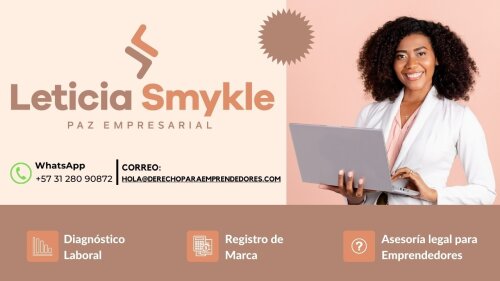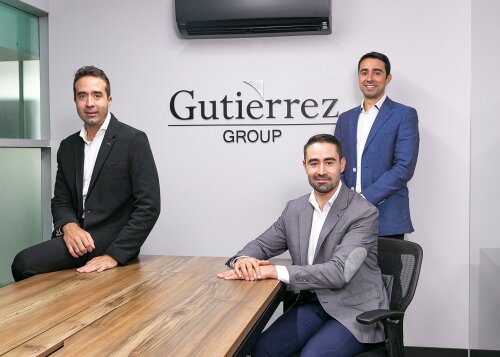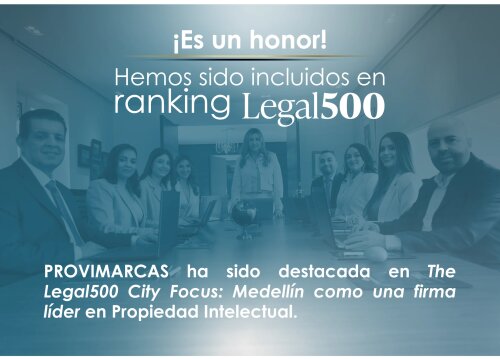Best Nonprofit & Charitable Organizations Lawyers in Bogota
Share your needs with us, get contacted by law firms.
Free. Takes 2 min.
List of the best lawyers in Bogota, Colombia
About Nonprofit & Charitable Organizations Law in Bogota, Colombia
Nonprofit and charitable organizations play a vital role in the social, cultural, and economic development of Bogota, Colombia. These entities, known locally as "organizaciones sin ánimo de lucro" (OSAL), operate in a variety of sectors such as education, health, arts, community development, and environmental protection. Nonprofits in Colombia are governed by a specific legal framework designed to ensure that they operate transparently and in accordance with their mission statements. The law outlines the processes for registration, governance, taxation, and supervision, empowering these organizations to provide societal benefits while being accountable to the public and relevant authorities.
Why You May Need a Lawyer
Legal guidance is essential for anyone seeking to establish or manage a nonprofit or charitable organization in Bogota. A qualified lawyer can help navigate complex regulatory requirements, draft foundational documents, and offer strategic advice to maintain compliance. Common scenarios where legal assistance is beneficial include:
- Drafting and reviewing the organization's bylaws and internal regulations
- Registration and obtaining legal status before the Bogota Chamber of Commerce or other relevant authorities
- Ensuring compliance with tax and fiscal obligations
- Assisting with grant agreements or contracts with national and international donors
- Providing advice on relationships with employees, volunteers, and third parties
- Mediating and resolving disputes within the organization's governing bodies
- Addressing issues regarding donations, inheritance, or asset management
- Navigating dissolutions, mergers, or transformations of the nonprofit entity
Having legal advice helps prevent costly mistakes, preserve the nonprofit's reputation, and ensure respect for the organization's mission and stakeholders.
Local Laws Overview
Colombia has a structured legal framework for nonprofit and charitable organizations, composed of national laws with additional local regulations in Bogota. The primary legislation includes the Civil Code, Law 22 of 1987, Law 489 of 1998, and Law 1819 of 2016, among others. Key aspects to consider are:
- Legal Entity Registration: Nonprofits must register with the Chamber of Commerce (Registro de Entidades sin Ánimo de Lucro) to obtain legal status and operate as a recognized entity.
- Governance Structure: The law requires a specific governing structure, including a board of directors and an assembly of members, with regular meetings and decision-making procedures.
- Supervision and Oversight: In Bogota, the District Government and other agencies may supervise nonprofits to ensure that they comply with their constitutive statutes and applicable regulations.
- Tax Matters: Qualified nonprofits may be eligible for tax benefits, but they must adhere to strict rules on reporting, transparency, and the use of resources exclusively for statutory purposes.
- Financial Reporting: Nonprofits are required to keep detailed financial records and submit annual reports to regulatory bodies.
- Foreign Donations: Organizations that receive funds from abroad must comply with additional oversight and reporting obligations.
Understanding these legal requirements is crucial to ensuring the proper formation and functioning of a nonprofit or charitable organization in Bogota.
Frequently Asked Questions
What types of nonprofit organizations can be formed in Bogota?
Common structures include associations, foundations, and corporations. Each type has its own formation, governance, and regulatory requirements.
How do I register a nonprofit organization in Bogota?
You must file an application with the Bogota Chamber of Commerce, provide founding documents such as bylaws and meeting minutes, and comply with any sector-specific regulations.
Are nonprofit organizations automatically tax-exempt in Colombia?
No, nonprofits must apply for tax-exempt status and meet specific criteria. They must also file annual tax returns and financial statements.
Can a nonprofit generate revenue?
Yes, nonprofits can undertake income-generating activities as long as profits are reinvested into the organization's mission and not distributed among members.
What are the legal obligations for board members?
Board members must act in good faith, ensure regulatory compliance, and are responsible for overseeing the management and administration of the organization.
How are nonprofits supervised in Bogota?
Various local and national authorities oversee nonprofit operations, including the Superintendencia de Sociedades and local district government agencies.
What reporting requirements do nonprofits have?
Nonprofits must submit annual financial statements, update their registration, and report any substantial changes to governing documents or leadership.
Are foreign donations subject to regulation?
Yes, receiving foreign funds involves additional transparency and reporting requirements, especially regarding anti-money laundering and anti-terrorism financing regulations.
Can a nonprofit have paid employees?
Yes, nonprofits can hire paid staff in accordance with Colombian labor laws, in addition to engaging volunteers.
What happens if a nonprofit wants to dissolve?
The organization must follow a specific dissolution process, liquidate assets, and distribute any remaining funds according to its statutes and applicable laws.
Additional Resources
Individuals seeking more information or assistance on nonprofit and charitable organizations in Bogota can consult the following resources:
- Bogota Chamber of Commerce (Cámara de Comercio de Bogotá) - for registration and formalities
- Superintendencia de Sociedades - for oversight and compliance matters
- DIAN (Dirección de Impuestos y Aduanas Nacionales) - for tax status and reporting
- Colombian Ministry of the Interior - for general guidelines and sectoral regulations
- Red de ONG de Bogotá - a local network offering support and advocacy for nonprofit organizations
- Legal clinics at local universities - offering pro bono advice
Next Steps
If you need legal assistance with starting, managing, or advising a nonprofit or charitable organization in Bogota, consider the following steps:
- Document your objectives and gather relevant information regarding your intended activities and organizational structure
- Reach out to a qualified lawyer or specialized legal firm with experience in nonprofit law
- Schedule an initial consultation to discuss your needs and understand potential legal requirements
- Gather all necessary documentation before approaching government authorities for registration or permits
- Stay informed about changes in legislation by connecting with local nonprofit networks and attending informational events
- If needed, seek ongoing legal support for compliance, governance, or dispute resolution to ensure your organization operates effectively and lawfully
Taking these actions will help you set up and maintain a successful nonprofit organization, make a positive impact, and navigate the Colombian legal system with confidence.
Lawzana helps you find the best lawyers and law firms in Bogota through a curated and pre-screened list of qualified legal professionals. Our platform offers rankings and detailed profiles of attorneys and law firms, allowing you to compare based on practice areas, including Nonprofit & Charitable Organizations, experience, and client feedback.
Each profile includes a description of the firm's areas of practice, client reviews, team members and partners, year of establishment, spoken languages, office locations, contact information, social media presence, and any published articles or resources. Most firms on our platform speak English and are experienced in both local and international legal matters.
Get a quote from top-rated law firms in Bogota, Colombia — quickly, securely, and without unnecessary hassle.
Disclaimer:
The information provided on this page is for general informational purposes only and does not constitute legal advice. While we strive to ensure the accuracy and relevance of the content, legal information may change over time, and interpretations of the law can vary. You should always consult with a qualified legal professional for advice specific to your situation.
We disclaim all liability for actions taken or not taken based on the content of this page. If you believe any information is incorrect or outdated, please contact us, and we will review and update it where appropriate.
















